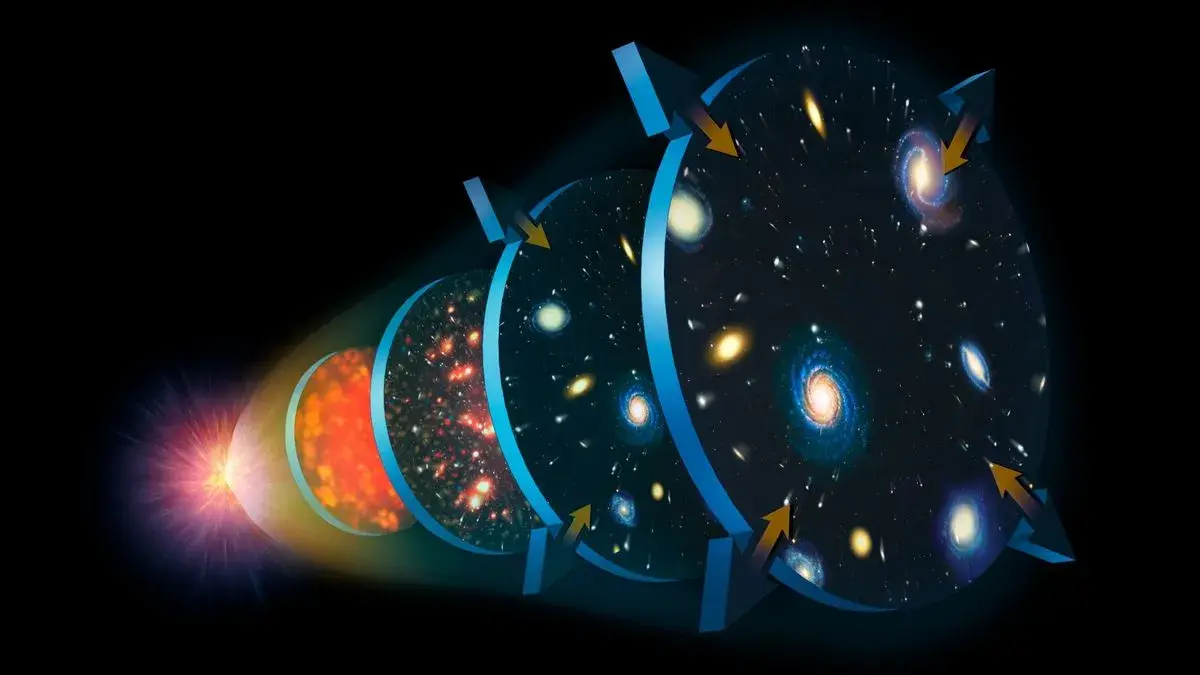Astronomers have used the James Webb and Hubble space telescopes to confirm one of the most troubling conundrums in all of physics — that the universe appears to be expanding at bafflingly different speeds depending on where we look.
This problem, known as the Hubble Tension, has the potential to alter or even upend cosmology altogether. In 2019, measurements by the Hubble Space Telescope confirmed the puzzle was real; in 2023, even more precise measurements from the James Webb Space Telescope (JWST) cemented the discrepancy.
Now, a triple-check by both telescopes working together appears to have put the possibility of any measurement error to bed for good. The study, published February 6 in the Astrophysical Journal Letters, suggests that there may be something seriously wrong with our understanding of the universe.



Yesssss I yearn for new physics
The prospect of irregular and unpredictable physics gives me anxiety
With the universe is not being locally real, and now this… Oh man. Exciting times for sure.
Yes, discovery is awesome, and this is some crazy shit— it’s just that I prefer that the the rules that govern time and space make sense, lol.
It makes sense — we just don’t understand it yet 😀
Fine
It’s turtles all the way down.
I predict bubbles warping time but not space, thus distorting the apparent speeds of objects we see through them. Star Trek taught me that anything is possible. 😆
And just imagine the new fields of math such a discovery would create…
“I’m just going to round it anyways” - Engineering
The Intel floating-point math error strikes again.
If something warps time, doesn’t it inherently warp space, and vice versa?
Normally yes, but if an exception was found then that too would fundamentally change what we think we know. I doubt it will come down to anything quite that simple, but on the other hand gravity is one of those forces that we still don’t completely understand and when dealing with things on a galactic scale perhaps this new observation will start to crack open that particular mystery. It’s easy to speculate at this point, but really my hope is that this will lead to a better understanding of something huge. I think the most boring outcome of this would be something like “oops we made a mistake in our math.”
What do you mean by this?
This can explain it better than I’m able to:
https://www.scientificamerican.com/article/the-universe-is-not-locally-real-and-the-physics-nobel-prize-winners-proved-it/
Sometimes popular science goes a bit too far. Entanglement of particles and the fact that hidden variables don’t exist does not mean that stuff is not “real”. At least I feel that is abusing the word “real”.
Not following you. That’s literally what they awarded the Nobel for.
Well the link you just posted says they got the prize “for experiments with entangled photons, establishing the violation of Bell inequalities and pioneering quantum information science”. They didn’t get the prize for showing that “the universe is not locally real”. That’s just something the article makes up in the headline to draw readers in.
I mean I get it, it’s hard to make science exciting and you need a bit of flair but I feel sometimes it goes a bit too far and kinda gives people the wrong idea.
The magazine did not make up locality lol.
In theoretical physics, quantum nonlocality refers to the phenomenon by which the measurement statistics of a multipartite quantum system do not allow an interpretation with local realism.
They literally did prove, and was awarded for, showing that the universe is not locally real.
Edit. To be clearer, realism means
deleted by creator
It’s as real as anything gets. What constitutes as “real” is more of a philosophy questions than physics question. Make up your own answer.
This article https://nautil.us/chaos-makes-the-multiverse-unnecessary-236664/ made me very uncomfortable back when it was published. It takes what you say to the philosophical limit.
Uh, I hate how that article says ‘she’ for a scientist (just as I would hate if it said ‘he’). Say ‘they’!
Neat
As a science bitch I’ve never believed in the Big Bang… I think everything has always been and will always be and it goes on forever in every direction and when I think about that my feet feel weird
Do you have evidence to support your position? Or is this just wishful thinking?
Well technically it would be skepticism
Actually it’s the opposite, skepticism isn’t the questioning, it’s the proportioning of conviction to the amount of available evidence.
Disbelieving the claim of the Big Bang might be warranted, depending on the level of personal ignorance, but there’s much much more evidence for a big bang than an “eternal, ever expanding void” supported by tingling feet.
Feel free to refer to the Wikipedia article on Scepticism, and better sources.
If I remember correctly, that’s basically the Einstein - de Sitter universe, one of the early cosmological models. Einstein also didn’t like the accelerated growth of the universe, he called the cosmological constant (what’s now known as dark energy) a big mistake.
So when you run that model backwards a few billion years in your head then what do you think that looked like? I don’t follow what you mean.